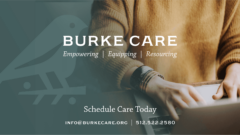They are far and away the most common questions I receive (beyond, perhaps, how to pronounce my name—it rhymes with “valleys”): Can you tell me anything about this author? Have you heard of this book? Is it safe to read? Sometimes people ask to avoid wasting time or money on a book that would not be worth either one, and sometimes they ask to avoid the influence of false doctrine. Since I can’t answer all the questions, and since I can’t know all the books and authors, I’ll offer a few tips on sorting it all out and do so in the form of 5 questions you can ask of any book.
Who wrote you? Familiarize yourself with trustworthy authors. As a reader you should have your list of favorites, the short list of people you regard as especially influential and trustworthy. I believe there is a lot of value in tracking a few authors through the course of their career and reading—or at least considering—every one of their books. This is difficult with an R.C. Sproul since if you begin today you are 100 books behind, but much easier with younger authors who have a shorter list of works. Don’t know where to begin? Then ask a friend or pastor. Or ask me. I’d try people like H.B. Charles Jr., Kevin DeYoung, Gloria Furman, Russell Moore, Andy Naselli, Barnabas Piper, or Jen Wilkin—people like that. They have each written a few books but not so many that you’ll need to spend two years catching up, and they are all likely to write quite a few more. Find “your” authors and read what they write. But then also track who endorses their books, who speaks at conferences with them, and so on. Start to look for connections.
Who published you? You should familiarize yourself with Christian publishers and learn which of them are especially trustworthy. There are quite a lot of excellent publishers whose books may vary by quality and secondary theological issues but which will never fall outside the conservative Evangelical stream. Learn to trust these ones. Among them are Banner of Truth, Christian Focus, Crossway, Evangelical Press, Matthias Media, P&R, Reformation Heritage, Reformation Trust, The Good Book Company, (and, I hope, Cruciform Press since I was involved in founding it). If they publish it, you can be quite confident in it. Other publishers publish a much wider range of titles and, depending on the company, the imprint, or the department, their titles may range from very good to quite concerning or from very good to outright heretical. For these you will need to exercise a bit more caution. Here I refer to IVP, Eerdmans, Multnomah, Thomas Nelson, Zondervan, as well as the faith or Christian imprints of large mainstream publishers (Harper Collins, Penguin, and so on).
Who endorsed you? If you don’t know the author or publisher, or you are still looking for more information, check the endorsements or, more properly, the endorsers. Look there for trusted or at least familiar names. The value of endorsements is not so much in what the endorser says but in the fact that the endorser is willing to put his or her name to the other person’s work. Your favorite and most trusted authors can also become your most trusted endorsers. Not only that, but their friends can become your friends. I have learned that there are some authors who are very slow to put their name to a book so have an extra measure of trust for them. Names that mean a lot to me include : Randy Alcorn, Thabiti Anyabwile, Nancy Leigh Demoss, Mark Dever, Gloria Furman, Mary Kassian, John MacArthur, Al Mohler, Andy Naselli, Burk Parsons, John Piper, and R.C. Sproul. There are others who endorse so many books across such a wide spectrum that I no longer put much stock in their endorsements, but it would be inappropriate for me to say who they are.
Who reviewed you? Avid readers read more than books—they also read reviews of books. Reviews are helpful in giving an in-depth overview of a book or providing some in-depth engagement with it. They also serve to keep you updated on books you have not read. As you commit to reading more and more, begin to find reviewers you can trust. When I haven’t read a book, I find myself looking to see if it has been reviewed by Aaron Armstrong, Books at a Glance, David Steele, The Gospel Coalition, Themelios, or any of my favorite bloggers. For children’s books I look to Redeemed Reader. WORLD magazine is also a useful source if you have a subscription. For general market books I am an avid reader of the book sections of New York Times and Macleans.
Who will I find in your endnotes? If all else fails, look at the book’s sources. Few books stand on their own and most authors rely on work that has already been written. You can learn a lot by flipping to the endnotes to see who the author is quoting and interacting with. Look especially for your favorite authors and publishers. If it is a book on the spiritual disciplines and contains hundreds of quotes from Richard Foster it will be a very different kind of book than if it contains plenty of quotes from, say, Donald Whitney. A book on preaching that draws from Martyn Lloyd-Jones and John MacArthur will be very different from one that draws from Joel Osteen and Rob Bell. The more you familiarize yourself with Christian books, the more information you will be able to glean this way.
All of this is designed to help you filter the few books you will read from the thousands you could read. Not only that, but it is designed to help you get a sense of what a book is all about before you begin to read it. When you are quite new to Christian books, there is value in choosing your books carefully to avoid bad influences. As you familiarize yourself with doctrine and as you better ground yourself in truth, you will become better equipped to exercise discernment when reading and to read “bad” books without fear of being unduly influenced by unworthy books.










